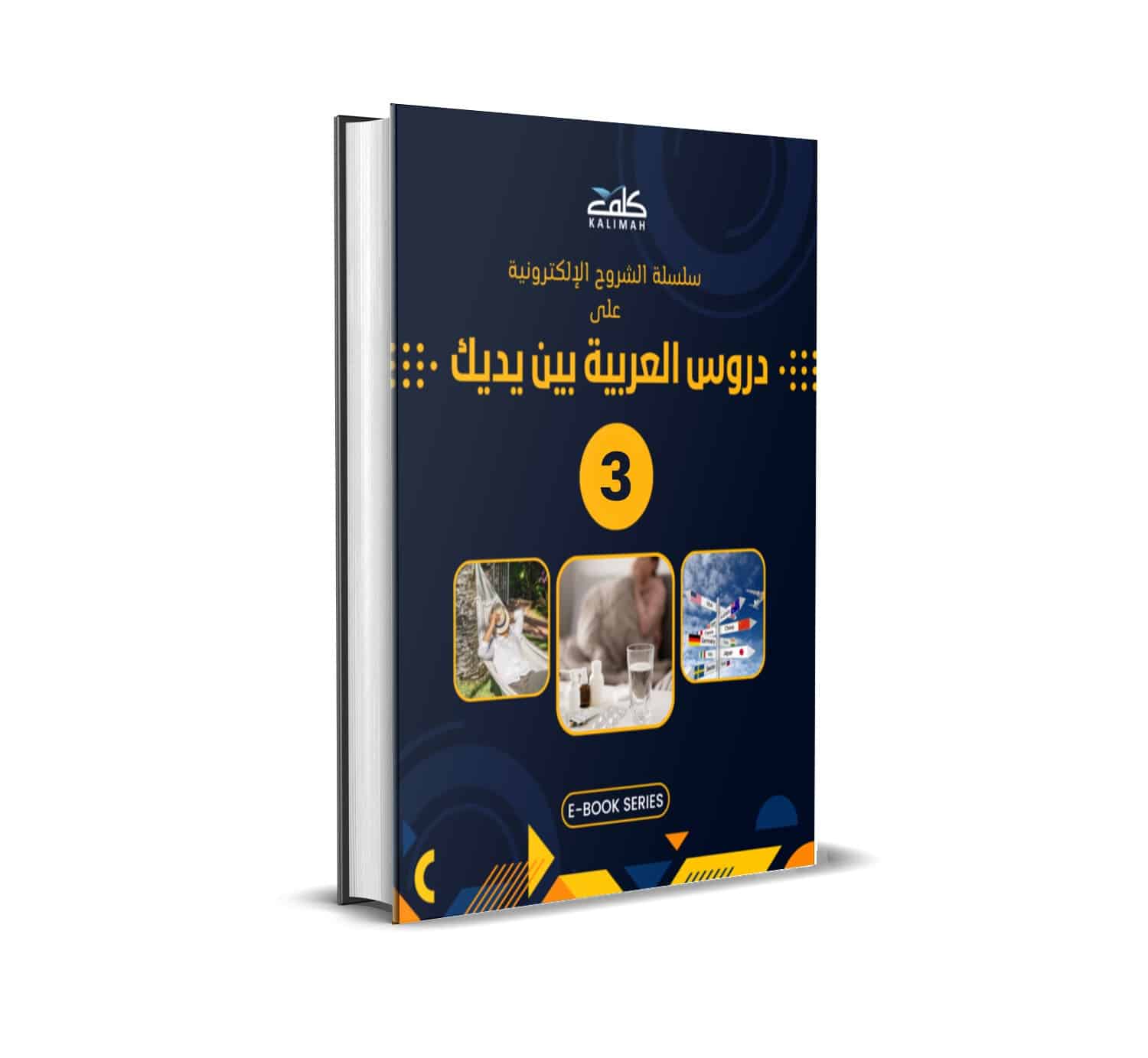In a nutshell: Learning Arabic isn’t mandatory to be a devout Muslim, though it’s the language of the Quran. Basic Arabic is needed for prayers, but fluency isn’t required. However, understanding Arabic can deepen your spiritual connection and enrich your faith. At Kalimah Center, we offer courses for all levels to help you explore this beautiful journey and connect more deeply with Islam.
As-salamu alaykum, dear brothers and sisters. Here at Kalimah Center, we often hear the question, “Do you have to learn Arabic to be Muslim?” This reminds us of a moment when a young student asked, “Can I still be a devout Muslim if I can’t speak Arabic properly?” This question touches upon the heart of a complex yet beautiful truth about our faith.
You see, Islam, like any religion, is a tapestry woven with many threads: faith, practice, and yes, language. But is learning Arabic mandatory in Islam? Is Arabic the sole language of Allad? Is learning Arabic a requirement to be a good Muslim? Do you have to speak Arabic to be Muslim?
We invite you to delve into these questions with us, as we navigate the nuanced relationship between faith and language.
Arabic: The Language of the Quran
Arabic, my dear brothers and sisters, is not just any language; it’s the very vessel chosen by Allah (SWT) to hold His final message to humanity. Every word, every letter, carries a weight and a depth that cannot be fully grasped in any other tongue.
As Muslims, we hold the Quran close to our hearts, and its Arabic words resonate deep within our souls.
In the Quran, Allah says:
(وَكَذَٰلِكَ أَوْحَيْنَا إِلَيْكَ قُرْآنًا عَرَبِيًّا لِّتُنذِرَ أُمَّ الْقُرَىٰ وَمَنْ حَوْلَهَا وَتُنذِرَ يَوْمَ الْجَمْعِ لَا رَيْبَ فِيهِ ۚ فَرِيقٌ فِي الْجَنَّةِ وَفَرِيقٌ فِي السَّعِيرِ)
“And thus We have revealed to you an Arabic Qur’an that you may warn the Mother of Cities [Makkah] and those around it and warn of the Day of Assembly, about which there is no doubt. A party will be in Paradise and a party in the Blaze.” (Ash-Shura, 42:7)
In this verse, Allah reminds us that the Quran was revealed in Arabic for a specific purpose – to warn the people of Makkah and everyone else about the Day of Judgment. On that day, some people will go to Paradise (Jannah), and others will go to the Blaze (Hellfire).
Faith Beyond Language
Knowing Arabic is important to fully understand the Quran. However, even if you don’t know Arabic, you can still be a Muslim. Islam is for everyone, regardless of their language or background. Allah says in the Quran:
(وَمَا أَرْسَلْنَاكَ إِلَّا كَافَّةً لِّلنَّاسِ بَشِيرًا وَنَذِيرًا وَلَكِنَّ أَكْثَرَ النَّاسِ لَا يَعْلَمُونَ)
“And We have not sent you, [O Muhammad], except as a comprehensive warner and bearer of good tidings to all mankind, but most of the people do not know.” (Saba, 34:28)
This verse tells us that Prophet Muhammad was sent as a messenger to all people, not just Arabs. The message of Islam is universal, and everyone is invited to believe in it.

Understanding the Islamic Requirement to Learn Arabic
Let’s start with the basics. There is a consensus that a basic level of Arabic is required for every Muslim to fulfill their religious obligations (fard ain).
Imam Shafi’i, a prominent Islamic scholar, stated: “It is obligatory upon every Muslim to learn from the Arabic language what allows him to make effort in fulfilling his obligations.” This implies that every Muslim must know enough Arabic to understand and perform their religious duties.
But what does this mean practically? At a minimum, every Muslim should strive to learn the following:
- The Declaration of Faith (Shahada): لَا إِلَٰهَ إِلَّا ٱللَّٰهُ مُحَمَّدٌ رَسُولُ ٱللَّٰهِ (La ilaha illallah, Muhammadur rasulullah) – There is no god but Allah, and Muhammad is the messenger of Allah.
- Surah Al-Fatiha: The opening chapter of the Quran, recited in every prayer.
- Some Additional Verses for Prayer: such as Surah Al-Ikhlas 112.
Knowing these basics allows a Muslim to pray and understand the core tenets of their faith. However, the pursuit of deeper knowledge of Arabic is highly encouraged. A deeper understanding of Arabic not only facilitates a more profound connection with the Quran and the Sunnah, but also fosters khushu’ (humility and presence) in prayer.
At Kalimah Center, we cater to all levels of learners, from beginners who simply want to understand their prayers to those who aspire to become scholars of the Arabic language. Whether your goal is to deepen your faith, connect with the rich cultural heritage of the Arab world, or simply enjoy the beauty of the language, we have a course that’s right for you.
Is Learning Arabic Mandatory in Islam?
YES, every Muslim must learn enough Arabic in some level to recite the Shahada (declaration of faith), Surah Al-Fatiha (the first chapter of the Quran), and some additional verses for prayer. And it’s just it.
BUT…
Complete fluency isn’t required. It’s not necessary for every Muslim to become a scholar of the Arabic language. The depth of learning depends on individual circumstances and aspirations.
So, do you have to speak Arabic to be Muslim? The answer remains no, you don’t have to speak Arabic to be Muslim. Basic Arabic is necessary for performing religious duties only, but it is not required for all aspects of faith.
Can You Pray in Your Own Language?
NO, you cannot pray the five prayers in your own language. For the five daily prayers (Salah), Muslims are required to recite specific verses from the Quran in Arabic. This includes Surah Al-Fatihah and other Quranic passages.
However, personal supplications (dua) can be made in any language. This distinction ensures that the ritual prayers maintain their universal form while allowing personal prayers to be intimate and heartfelt.
Why is Arabic the Language of Islam?
Imagine a teacher explaining a lesson to their students. They would naturally speak in a language everyone understands, right? Well, that’s how Islam started. The Quran was revealed to Prophet Muhammad (peace be upon him) in the language he and his community already spoke – Arabic.
Allah (God) could have chosen any language, but He chose Arabic. Why? Well, think of it this way:
- The Quran is a message for all time: It needs to be preserved in its original form so that its meaning doesn’t change as languages evolve.
- Arabic is a rich and precise language: It has the power to express complex ideas and emotions with beautiful clarity.
- The Prophet’s mission was natural: The Prophet Muhammad was a human being, just like us. He spoke the language of his people, not a miraculous mix of all languages. This makes his example one we can follow.
So, Arabic is the language of Islam because it’s the language the Quran was revealed in. It’s part of the natural way Allah chose to guide us.
Does that mean you have to be an Arabic expert to be a good Muslim? Absolutely not! The most important thing is your beliefs and your actions. But learning Arabic can definitely help you understand Islam better.
Is Arabic the Language of God?
While Arabic is the language of the Quran, it is important to understand that Allah, in His infinite wisdom, is beyond any single language. However, Allah understands and listens to all languages, and one’s devotion and sincerity in worship are what truly matter.
Allah mentions in the Quran:
(وَمِنْ آيَاتِهِ خَلْقُ السَّمَاوَاتِ وَالْأَرْضِ وَاخْتِلَافُ أَلْسِنَتِكُمْ وَأَلْوَانِكُمْ ۚ إِنَّ فِي ذَٰلِكَ لَآيَاتٍ لِّلْعَالِمِينَ)
“And of His signs are the creation of the heavens and the earth and the diversity of your tongues and your complexions. In all that there are signs for those who are endowed with knowledge.” (Ar-Rum 30:22)
This verse highlights the diversity of languages as one of Allah’s signs. Arabic, as the chosen language for the final revelation, carries a profound significance, but it does not diminish the value of other languages.
So, while Arabic is the language of the Quran, it’s not meant to be a barrier. It’s a bridge to understanding the heart of Islam. And as we learn Arabic basics, we connect not only with the Quran but also with the rich history and culture of the Muslim world. It’s a beautiful journey of discovery, open to anyone who seeks it.
Can You Go to Jannah Without Knowing Arabic?
Absolutely. Paradise is attained through faith, good deeds, and Allah’s mercy, not linguistic skills.
Islam is a universal religion that transcends linguistic boundaries. The essence of being a Muslim lies in the belief in Allah, the angels, the Books, the Messengers, and the Last Day, and in practicing the five pillars of Islam: the declaration of faith, prayer, fasting, zakah, and Hajj.
Allah says in the Quran:
(بَلَىٰ مَنْ أَسْلَمَ وَجْهَهُ لِلَّهِ وَهُوَ مُحْسِنٌ فَلَهُ أَجْرُهُ عِندَ رَبِّهِ وَلَا خَوْفٌ عَلَيْهِمْ وَلَا هُمْ يَحْزَنُونَ)
“Whoever surrenders his purpose to Allah while doing good works, they will surely have their rewards with their Lord, and they will have no reason to fear or grieve.” (Al-Baqarah 2:112)
This verse reassures us that faith and good deeds are what matter most. However, let’s delve deeper into why Arabic holds a special place in Islam.
However, learning Arabic can enrich one’s understanding and practice of Islam.
Is it Sunnah to learn Arabic?
Yes, learning Arabic is considered a sunnah (recommended act) in Islam. It is not mandatory for every Muslim to become fluent, but it is highly encouraged for several reasons:
- Understanding the Quran: The Quran was revealed in Arabic, and learning the language allows for a deeper and more nuanced understanding of Allah’s message.
- Connecting with Islamic Heritage: Arabic is the language of Islamic scholarship, literature, and culture. Learning it opens up a vast world of knowledge and history.
- Following the Example of the Prophet and Companions: The Prophet Muhammad (peace be upon him) was a master of Arabic language. Learning Arabic is a way to follow in the footsteps of the Prophet and to gain a deeper understanding of his teachings.
And as Umar ibn Al-Khattab (may Allah be pleased with him) said, “تعلَّموا العربيةَ؛ فإنها من دينِكم” (Learn Arabic, for it is part of your religion).
Learning Arabic, even a little, is a beautiful way to deepen your connection with Islam. Even basic Arabic phrases, like الحمد لله (Alhamdulillah – Praise be to God) and إن شاء الله (Insha’Allah – God willing), can enrich your prayers and daily life.
If you are able, I encourage you to embark on this linguistic journey. You might be surprised at how quickly you can understand the language of the Quran and how it illuminates your faith. Kalimah Center offers a range of online Arabic courses tailored to different levels, making it accessible for everyone to learn.
Your Arabic and Quran Journey Begins Here
Kalimah Center is your gateway to this enriching world. Our online Arabic courses cater to all levels, from absolute beginners to those seeking advanced proficiency. Our experienced teachers are passionate about sharing the beauty of the Arabic language and the wisdom of Islam.
Our comprehensive Arabic program is designed to guide you through every stage of your language acquisition, from the very first letter to engaging in deep conversations on complex topics.
Phase 1: Building Blocks
- Arabic Alphabet & Writing: Master the Arabic script and basic writing skills in just a few months.
- Essentials of Arabic: Lay the groundwork for communication with basic vocabulary and grammar.
Phase 2: Conversation Starter
- Everyday Arabic: Gain confidence in handling daily conversations with ease.
Phase 3: Advanced Speaker
- Deepening Conversations: Discuss complex societal topics and refine your grammar knowledge.
Beyond the Basics
- Specialized Courses: For those who wish to dive deeper, explore our specialized courses in MSA, Classical Arabic, and Fusha.
- Learn Arabic Online Course (Main program): Immerse yourself in the Arabic language and culture, gain fluency, and confidently communicate in Arabic.
- Learn Arabic For Kids Course: Ignite your child’s passion for Arabic with interactive and engaging lessons designed for young learners.
- Learn Quran Online Course: Master Quranic recitation, understand Tajweed rules, and connect with Allah’s divine words under the guidance of experienced teachers.
Conclusion:
The question “Do you have to learn Arabic to be Muslim?” often arises, and while Arabic is the language of the Quran, knowing it isn’t mandatory to be a devout Muslim. The essence of Islam lies in faith and practice, not linguistic ability. Basic Arabic is necessary for performing religious duties, such as reciting prayers, but complete fluency is not required.
However, learning Arabic can deepen your connection with the Quran and enrich your spiritual experience. It’s a beautiful journey that enhances understanding of Islamic texts and fosters a closer relationship with the faith. At Kalimah Center, we offer courses for all levels to help you embark on this enriching path, making Arabic accessible and enjoyable for everyone.












